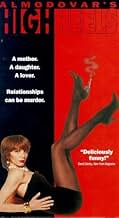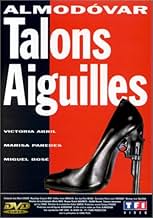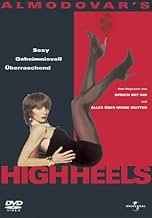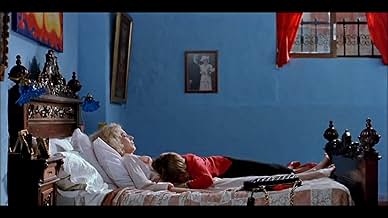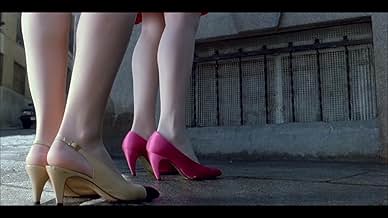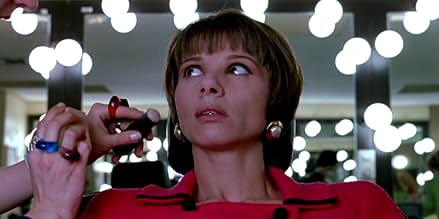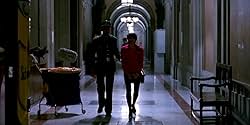La mère d'une jeune fille revient après 15 ans sans la voir et découvre que sa fille a épousé un de ses ancien copains à elle. Elles tentent de réparer leur relation mère-fille brisée mère e... Tout lireLa mère d'une jeune fille revient après 15 ans sans la voir et découvre que sa fille a épousé un de ses ancien copains à elle. Elles tentent de réparer leur relation mère-fille brisée mère et de gérer leur amour partagé.La mère d'une jeune fille revient après 15 ans sans la voir et découvre que sa fille a épousé un de ses ancien copains à elle. Elles tentent de réparer leur relation mère-fille brisée mère et de gérer leur amour partagé.
- Réalisation
- Scénario
- Casting principal
- Récompenses
- 10 victoires et 8 nominations au total
- Margarita
- (as Ana Lizaran)
- Madre del Juez Domínguez
- (as Mairata O'Wisiedo)
- Manuel Giner
- (as Feodor Atkine)
- Susana
- (as Bibi Andersen)
- Capellán Hospital
- (as Juan Jose Otegui)
- Maquilladora 1.ª
- (as Montse G.ª Romeu)
Avis à la une
The story involves a daughter Rebeca (Victoria Abril), her famous mother Becky (Marisa Paredes) who returns to Spain after fifteen tears, a murder that could have been committed by Rebeca, Becky and a third suspect, Judge Domínguez (Miguel Bosé) who is on the case, and a lot of colorful supporting characters. I could tell you more but the plot is not really the issue here. Although this films sounds like a drama, maybe a detective or a thriller even, it is closer to a comedy because of the way Almodóvar handles the absurd situations. There is a scene where Rebeca, an anchorwoman, tells something about the murder where she herself is one of the suspects. Next to her sits a woman who does the news in sign language. The whole scene, which is dramatic in what it tells us, is one of the best moments of comedy I have seen.
Of course the themes here are really dramatic. Not only we have the murder, we also have Rebeca who has wanted to impress her mother her entire life. It is just that Almodóvar creates a world that reminds you of a soap opera that can bring comedy out of every dramatic event. That his film is more serious than you might think is proved by the symbolism he uses. Scenes where Rebeca is temporarily in prison show her in a symbolic way how she feels. In another beautiful scene we see Rebeca driving her car, but it is the wall on the background that draws her attention. It is like her entire life is written on the wall. Almodóvar who loves to use bright colors finds an effective way here to use them, representing the state the character is in. It is not only effective it is quite beautiful to look at as well.
Rebeca and Becky's final realization of each other's own self finally comes in the unselfish gesture that defines motherhood -- sacrifice.
Although this movie is listed as a drama, the madness surrounding most of Almodovar leading ladies is ever present. Raunchy and racy, as well as tender and sweet, this movie is well worth the look if you can find it.
Le saviez-vous
- AnecdotesPedro Almodóvar often brings a scene or character from his previous film to be reused in his next production. In this case, Victoria Abril would go to star in Kika as another TV journalist.
- GaffesThe phone that rings after Rebecca comes home after getting out of jail is muted, yet it rings.
- Citations
Becky del Páramo: My daughter, Do you hate me?
Rebeca: No , I love you very much mother.
Becky del Páramo: I was afraid you hated me.
Rebeca: I hated you sometimes, but even on those times I never stop loving you.
Meilleurs choix
- How long is High Heels?Alimenté par Alexa
Détails
Box-office
- Montant brut aux États-Unis et au Canada
- 1 710 057 $US
- Week-end de sortie aux États-Unis et au Canada
- 74 103 $US
- 22 déc. 1991
- Montant brut mondial
- 1 710 876 $US
- Durée1 heure 52 minutes
- Rapport de forme
- 1.85 : 1
Contribuer à cette page


